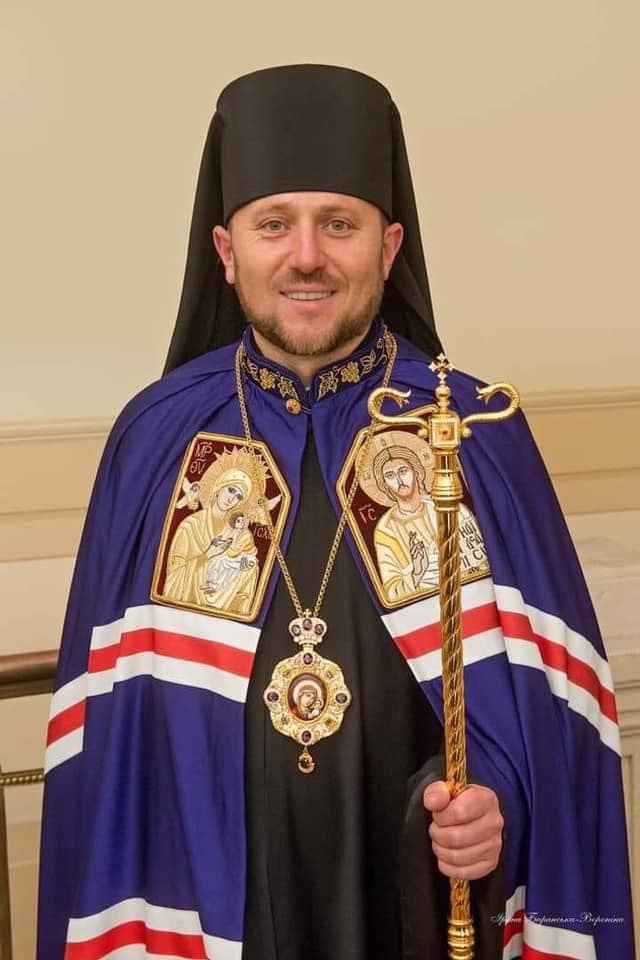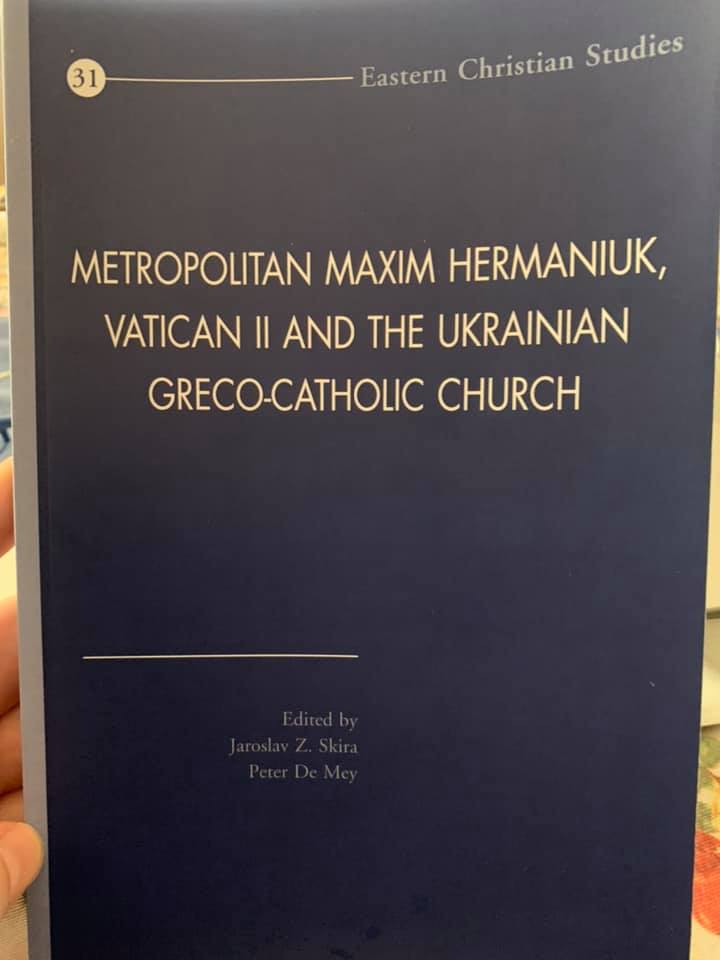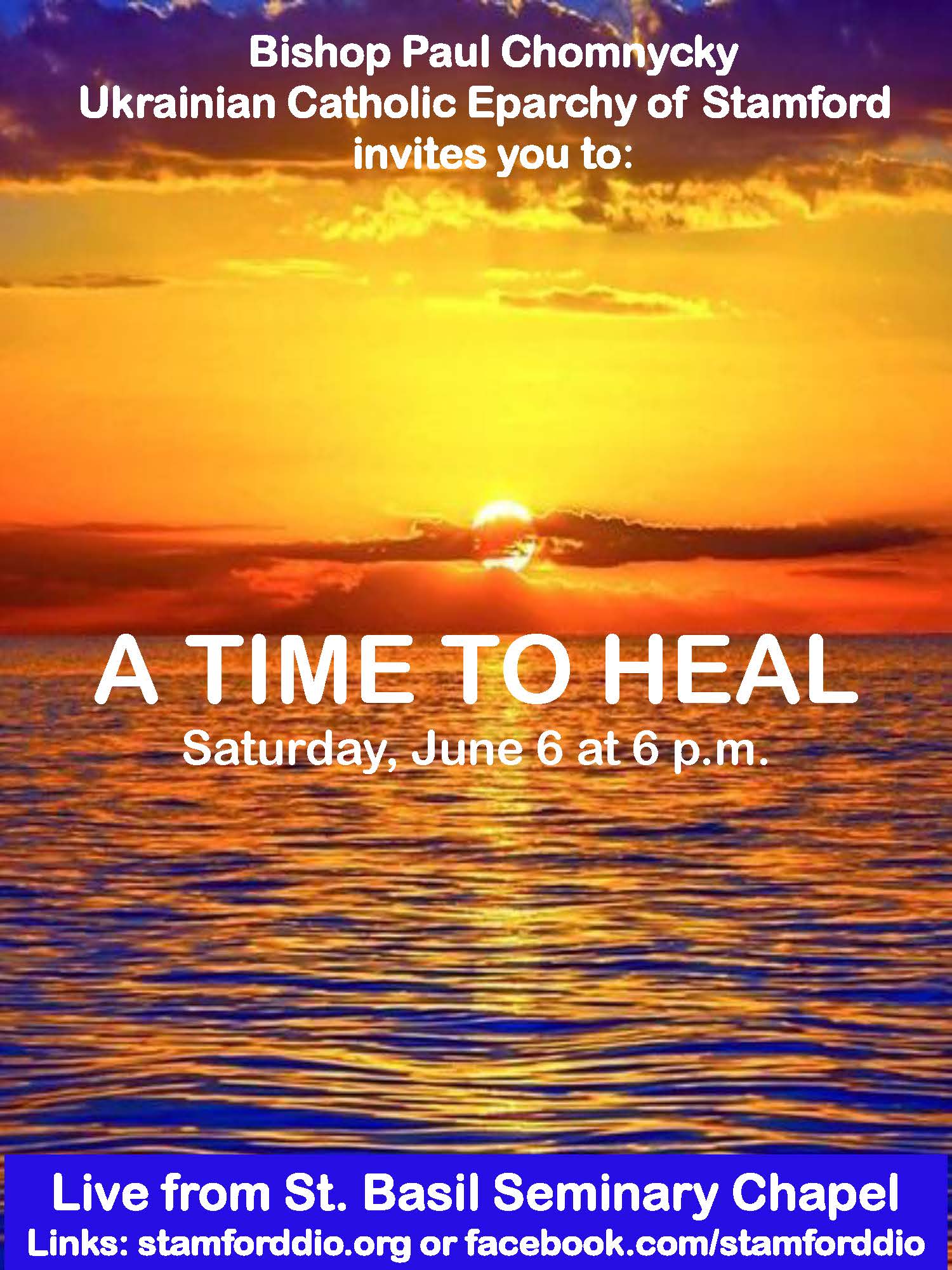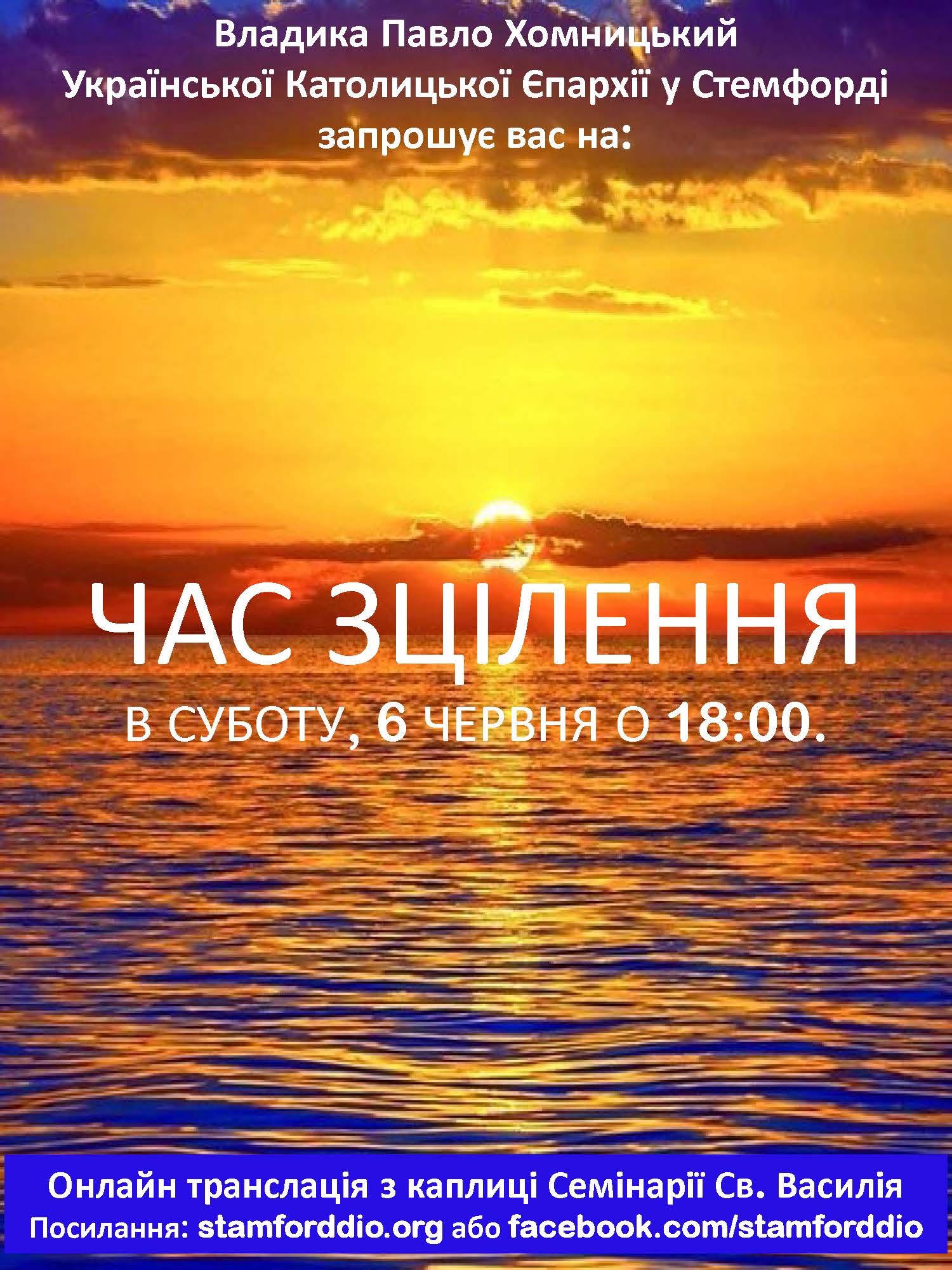Divine Liturgy for the Second Sunday after Pentecost, in Ukrainian
Divine Liturgy, June 14, 2020 in English –online
Divine Liturgy for the Second Sunday after Pentecost, in English
Mykola Bychok ordained bishop

Vladyka Mykola (Bychok), the newest bishop of the UGCC consecrated today on the Feast of the Descent of the Holy Spirit to be Bishop of the Eparchy of Australia and New Zealand.
May God grant many years.
Divine Liturgy for All Saints Sunday -online
New book on Maxim Hermaniuk, Vatican II and the UGCC
 Peeters in Leuven recently published Metropolitan Maxim Hermaniuk, Vatican II and the Ukrainian Greco-Catholic Church edited by Jaroslav Skira and Peter De Mey. It is in the series Eastern Christian Studies, number 31.
Peeters in Leuven recently published Metropolitan Maxim Hermaniuk, Vatican II and the Ukrainian Greco-Catholic Church edited by Jaroslav Skira and Peter De Mey. It is in the series Eastern Christian Studies, number 31.
This volume offers a collection of essays, by internationally known scholars, on the Ukrainian-Canadian Metropolitan Maxim Hermaniuk and the Ukrainian Greco-Catholic Church during the Second Vatican Council. A number of essays describe the historical context of the Ukrainian Greco-Catholic Church during and after the Council. Other essays focus on Met. Hermaniuk’s contributions during the Council, from his speeches on episcopal collegiality, ecumenism and the importance of the Eastern Christian Churches, to his work on the various conciliar commissions. Concluding sections of the volume then assess Hermaniuk’s efforts to promote the reception of the Council in his church. These essays critically engage and comment upon ‘The Second Vatican Council Diaries of Met. Maxim Hermaniuk, C.Ss.R. (1960-1965)’, ‘Eastern Christian Studies’ 15 (Leuven: Peeters, 2012). Two appendices include Met. Hermaniuk’s commentary on Orientalium ecclesiarum, plus an essay on the participation of the Ukrainian bishops at the Council.
The TOC can be read here.
Divine Liturgy for the coming week
Glory to Jesus Christ
Sunday, 6/07, Sunday of All Saints; Moleben to Jesus Christ
9:00 a.m. +Ann Muryn requested Mary and Michael Muryn
10:30 a.m. For the people of the parish; Moleben to Jesus Christ
Epistle: Hebrews 11:32-12:2a
Gospel: Matthew 10:32-33; 37-38 and 19:27-30, Tone 8
Monday, 6/08, Translation of the Relics of Great Martyr Theodore
9:00 a.m. God’s blessing and health for all members of Yanovski, Korenovsky and Chermak Families requested by the Chermak Family
Tuesday, 6/09, Holy Archbishop Cyril of Alexandria
9:00 a.m. +Mary Ann Yursha requested by Sestretsi
Wednesday, 6/10, Holy Bishop Martyr Timothy
9:00 a.m. +Olga Mackew requested by Sestretsi
Thursday, 6/11, Holy Apostles Bartholomew and Barnabas
9:00 a.m. +Mary Ann Yursha requested by Sestretsi
Friday, 6/12, Our Venerable Father Onuphrius
9:00 a.m. +Olga Mackew requested by Sestretsi
Saturday, 6/13, Holy Martyr Aquilina
8:30 a.m. +Olga Mackew requested by Sestretsi
Sunday, 6/14, 2nd Sunday after Pentecost
9:00 a.m. +Joseph Levitzky requested by Joseph M Levitzky; Moleben to Jesus Christ
10:30 a.m. For the people of the parish; Moleben to Jesus Christ
Epistle: Romani 7:1-13
Gospel: Matthew 4:18-23, Tone 1
Parish announcements
Christ is among us!
This week vigil light is offered to God’s glory by Maria Wysowskyj in memory of the Babovskij family.
Every Sunday you can watch streamed live on parish Facebook page and website at 9:00 a.m. Divine Liturgy in the English language and 10:30 a.m. Divine Liturgy in the Ukrainian language.
Facebook: https://www.facebook.com/stmichaelnewhaven
Website: https://stmichaelukrainian.org
For the Panachyda Service at the gravesites at other cemeteries, please call the rectory office for appointment.
In the church vestibule are arranged the forms for the Diocesan Charitable Fund. The forms are designed for each family of our parish. Attached to the form is an envelope into which you can place your contribution. The form along with your contribution, we ask you enclose in the envelope and place it in the collection basket during church services. Please make check payable to the Diocese of Stamford. DO NOT MAIL THIS FORM TO THE CHANCERY OFFICE. We sincerely ask all parishioners to make generous contributions.
Thank you to Nataliia Dankevych, Orysia Yanovski, Nadiya Ivantsiv and Michael Muryn for singing and reading the responses to the Divine Liturgies which were live-streamed when our church was closed. Also thank you to Paul Zalonski for providing technical support and posting of the live-streamed Divine Liturgies to our social media sites. Finally, thank you to Fr. Iura Godenciuc and Fr. Stepan Yanovski for enabling our parishioners to participate in the Sunday Divine Liturgies, in a virtual manner.
What Jesus said
Jesus said to them, “Amen, I say to you that you who have followed me, in the new age, when the Son of Man is seated on his throne of glory, will yourselves sit on the twelve thrones, judging the twelve tribes of Israel. And everyone who has given up houses or brothers or sisters or father or mother or children or lands for the sake of my name will receive a hundred times more, and will inherit eternal life. But many who are first will be last, and the last will be first.” (Matthew 19: 28-30)
Time to Heal –Bishop Paul calls us
 On Saturday, June 6, Bishop Paul invites the faithful of the Stamford Eparchy to join Him for a bilingual prayer service “Time to Heal” streamed LIVE from St. Basil Seminary Chapel at 6:00 p.m.
On Saturday, June 6, Bishop Paul invites the faithful of the Stamford Eparchy to join Him for a bilingual prayer service “Time to Heal” streamed LIVE from St. Basil Seminary Chapel at 6:00 p.m.
June’s prayer intention
 As is our custom, let us pray for the Church using the intention of Pope Francis. His prayer intention for the month of June is:
As is our custom, let us pray for the Church using the intention of Pope Francis. His prayer intention for the month of June is:
We pray that all those who suffer may find their way in life, allowing themselves to be touched by the Heart of Jesus.
Praying the Jesus Prayer is highly recommended but your prayer preference is also good.
Divine Liturgy for the Holy and Glorious Pentecost
“Blessed are You, O Christ our God who revealed the fishermen as most wise by sending them the Holy Spirit; through them You caught the entire world. Loving Master, glory to you.”